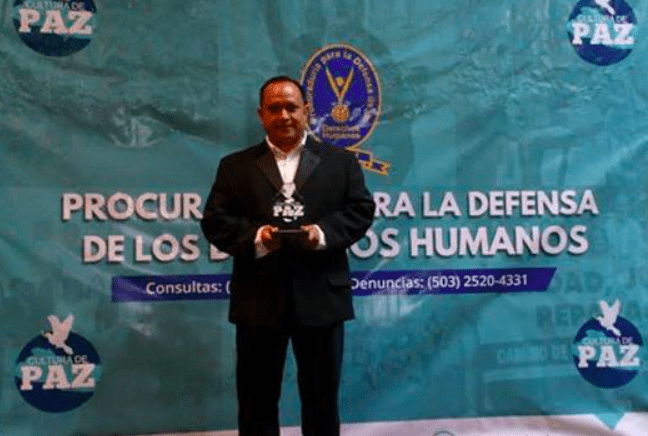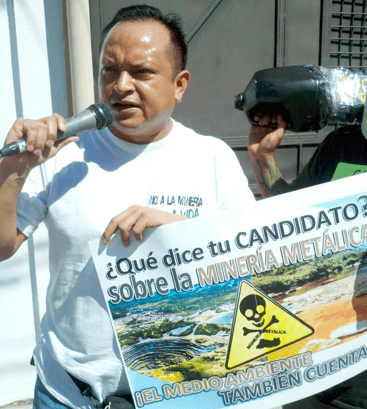Reproduced by kind permission of CIELCentre for International Environmental Law – http://www.ciel.org
There are No Winners in Pacific Rim Mining Company vs El Salvador
Investor-State Arbitration Subverts Democracy
October 14, 2016
Cabañas, El Salvador / Washington DC / Ottawa / Melbourne
Civil society groups worldwide that have allied with Salvadoran communities and organisations working on mining and environmental issues reacted to today’s decision by the controversial International Centre for Settlement of Investment Disputes (ICSID) on the seven-year old case of Pac Rim Cayman vs. El Salvador, stating that “there are no winners” in this case. On Friday, October 14, the tribunal announced their decision that Pac Rim’s lawsuit was without merit and hence that El Salvador will not have to pay the company the $250 million that it sought.
In 2009, Pac Rim Cayman LLC brought an “investor-state dispute settlement” (ISDS) case against El Salvador at the World Bank Group’s arbitration venue, ICSID. The company, now a wholly-owned subsidiary of the Canadian-Australian company OceanaGold, sued El Salvador for alleged losses of potential profits as a result of not being granted a mining concession for a gold project. The government of El Salvador did not issue the concession because the company failed to meet key regulatory requirements.
“The fact that Pac Rim – now OceanaGold – could sue El Salvador when it has never had a license to operate, is an abuse of process,” says Manuel Pérez-Rocha of the Institute for Policy Studies. “That these suits take place far from any transparent, independent court system demonstrates why we are opposed to the Trans-Pacific Partnership and other so called free trade agreements.”
This case is part of what led the Government of El Salvador to decide not to issue new mining permits. That decision has widespread support in El Salvador; a recent poll of the University of Central America (UCA) indicates that 79.5% of Salvadorans are against any gold mining.
The civil society groups from the four countries, which came together in 2009 as International Allies, praised the communities in El Salvador that have opposed the mining company and have rallied the Salvadoran public and government to oppose new mining projects despite heavy pressure from the mining company. They expressed disgust that El Salvador had to pay over $12 million to fund its defense in a case where the mining company never fulfilled all the legal or environmental requirements for a mining license.
“Irrevocable damage has already been done to communities in El Salvador,” says the Salvadoran Roundtable against Metallic Mining (La Mesa). “Pac Rim’s presence in El Salvador has fomented local conflict, which has led to threats, attacks, and assassinations. We want OceanaGold, and all the misery it has caused, out of El Salvador, and for the government to enact a prohibition on any metal mining.”
“By allowing transnational companies to blackmail governments to try to force them to adopt policies that favour corporations, investor-state arbitration undermines democracy in El Salvador and around the world,” says Marcos Orellana of the Center for International Environmental Law (CIEL). “Regardless of the outcome, the arbitration has had a chilling effect on the development and implementation of public policy necessary to protect the environment and the human right to water.”
“This is one of now far too many examples of Canadian mining companies making use of international arbitration to bully governments when their mine projects lack community consent and have not met legal or regulatory requirements. In contrast, communities have no effective means to hold these same companies to account for the systematic and serious harms resulting from their operations”, says Jen Moore of MiningWatch Canada.
“What we have now is a clear example of what is wrong with investor-state-dispute-settlement clauses, whether they are inserted in domestic laws or bilateral or multilateral investment agreements. El Salvador’s experience confirms the threats to human rights and the environment that occur when corporations bring a suit to tribunals like ICSID,” explained Robin Broad, professor at the American University.
“A mining company that calls itself responsible should not be using mechanisms like ICSID to force governments to do its bidding. Countries like El Salvador have a right to say no to mining without fear of a massive lawsuit”, said Keith Slack of Oxfam America.
“At a time of water scarcity, it is unconscionable for the global trade and investment regime to deny governments of water-stressed countries like El Salvador the policy space to protect local watersheds and ensure the realization of the human right to water,” says Maude Barlow, national chairperson of the Council of Canadians.
“It was morally reprehensible for Oceana Gold to demand $250 million USD from the Salvadoran people. This is a staggering amount for a cash-strapped country that could be much better used for education, health care, or other social services. This amount would fund the Ministry for the Environment and Natural Resources of El Salvador for more than one decade. The legal costs alone are enough to pay for over 2 years of adult literacy classes for 140,000 people,” says Emeritus Catholic Bishop Hilton Deakin of Melbourne, Australia.
“Let us be clear: El Salvador has lost a lot during all this arbitration. El Salvador had to pay more than $12 million, just to defend itself. These legal costs are enough to pay for over 2 years of adult literacy classes for 140,000 people. At a minimum, OceanaGold should reimburse El Salvador for the costs of this suit, which never should have taken place. And it should also be responsible for the social and environmental damage left in its wake,” says Alexis Stoumbelis of CISPES.
“This is a yet another case of corporate power being exercised against a democratic Government decision. If Australia ratifies the TTP there will be more of this to come” said Ged Kearney President of the Australian Council of Trade Unions.
“ISDS is part of a trade model that puts the needs of corporations before the needs of workers and the planet. The Salvadoran government did what a responsive democratic system is supposed to do: it listened to the desires and priorities of its constituents and acted accordingly” said Cathy Feingold, International Director of the AFL-CIO.
-//-
Contacts:
Amanda Kistler, CIEL – akistler@ciel.org, +1 202 742-5832
Jen Moore, MiningWatch Canada – jen@miningwatch.ca, +1 613 569 3439
Manuel Perez Rocha, IPS – manuel@ips-dc.org, + 1 240 838 6623
Laura Rusu, Oxfam America, laura.rusu@oxfam.org +1 202 459 3739
Robin Broad, American University, rbroad@american.edu, + 1 202 885 1478
Kevin Bracken, Maritime Union of Australia – kevin.bracken57@gmail.com
Sean Cleary, Edmund Rice Centre – sendwine@gmail.com, + 07-3376-8448
The International Allies against Mining in El Salvador are made up of organisations from Australia, Canada and the United States that support the Salvadoran people as they demand sovereignty, the right to water, healthy communities and a clean environment. Each of the organisations that make up the Allies has a history of solidarity work with El Salvador. More information is available at: www.stopesmining.org
Watch: Press conference as El Salvador explains the verdict (in Spanish)
Since 1989, the Centre for International Environmental Law (CIEL) has used the power of law to protect the environment, promote human rights, and ensure a just and sustainable society.
CIEL (Headquarters)
1350 Connecticut Avenue, NW Suite #1100
Washington DC, 20036
Phone: (202) 785-8700
Fax: (202) 785-8701
E-mail: info@ciel.org
CIEL (Geneva Office)
15 Rue Des Savoises, 1205
Geneva, Switzerland
Phone: 41-22-789-0500
Fax: 41-22-789-0739
E-mail: geneva@ciel.org
©2015 Center for International Environmental Law (CIEL), All Rights Reserved. Site by Rootid.in

